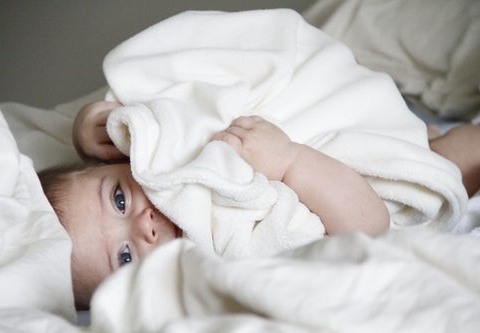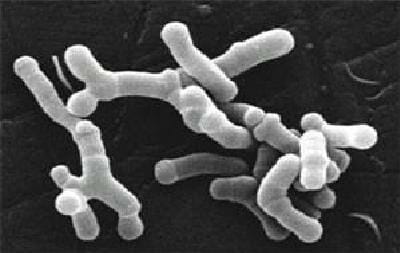Diarrhea in toddlers is inevitable because a toddler’s diet is expanding with age. Toddler diarrhea can occur anytime until the child reaches five years of age. Parenting from the inside out can help parents safeguard their toddlers against illness and help the toddler fully recover from sickness.
Normal or functional diarrhea is not a disease and tends to go away on its own with dietary adjustments. Acute diarrhea, however, requires adequate care and medical attention.
Even the mildest form of diarrhea can develop into full-blown diarrhea if it is not given the proper care and attention. In young children, weakness and dehydration due to diarrhea can cause serious health complications.
Symptoms of Toddler Diarrhea: Parenting from the Inside Out
Diarrhea occurs when a person has three to four loose, watery stools in a day. Parenting from the inside out requires parents to watch out for any signs and symptoms of a possible illness. A toddler may have diarrhea if he or she has to go to the bathroom immediately after waking up or eating.
The stools are not only watery, but they may also have undigested food particles in them and have a foul smell. The toddler might still have a normal appetite, but in severe cases, the toddler has a loss of appetite and appears sluggish. Other symptoms include abdominal pain, cramping, and rectal pain.
Chronic diarrhea may go away on its own; however, dehydration is a possibility. Diarrhea causes the body to lose a lot of water and electrolytes very quickly, which can be dangerous if left untreated.
If the toddler has four or more loose stools per day accompanied by nausea, vomiting, cramps, lethargy, and fever, or there is mucus or blood present in the stools, then the toddler has contracted acute diarrhea and needs medical attention.
Causes of Toddler Diarrhea
Toddler diarrhea is caused by eating irregularities, foodborne viruses, bacteria, or parasites.
Diarrhea has been recognized as a frequent health problem among children enrolled in day-care centers. —Researchers at the University of Maryland School of Medicine
Diarrhea caused by eating irregularities is not serious and can be cured with rest and a light diet. In normal diarrhea, food moves too quickly through the colon, so it doesn’t get the chance to digest properly. Also, fluids and nutrients don’t get the chance to be absorbed. However, diarrhea caused by foodborne viruses, bacteria, or parasites can be serious and may need medical attention.
Some possible reasons for diarrhea in toddlers include:
- Food allergies and intolerance. Some toddlers develop an intolerance to certain substances in their diet, and their immune system may react adversely to them. For example, toddlers who are lactose intolerant cannot digest cow’s milk. Toddlers who are sucrose intolerant tend to develop an allergic reaction to table sugar and fructose corn syrup. Toddlers who have celiac disease react adversely to gluten.
- Infections. Sometimes diarrhea is the result of parasitic and bacterial infections caused by Giardia, Cryptosporidium, or Clostridium difficile. They can be particularly hard to treat without the help of medications, especially antibiotics. Parenting from the inside out includes seeking medical attention for the child if necessary.
- Diet irregularities. Since toddlers are still getting used to eating, sometimes they end up either overeating or not chewing their food properly. They also tend to consume too much junk food. These types of eating habits can lead to indigestion and diarrhea. In particular, the excessive consumption of juices and sodas can cause diarrhea because these beverages have high amounts of high fructose corn syrup and sorbitol, which have a laxative effect on the intestines.
Treating Toddler Diarrhea
- Rehydration is the key to a quick recovery from diarrhea. So, give sick children plenty of water, but avoid giving them milk, juices, and sodas. Oral rehydration solutions can also help children rehydrate quickly and recover faster.
- A child suffering from acute diarrhea may need antibiotics or medications to treat bacterial overgrowth in the intestines and get rid of parasites. However, administer medications only after consulting a doctor. Overloading a child with antibiotics can lower the child’s overall immunity and make him or her susceptible to more infections.
- Most of the time, a light diet prevents a toddler’s digestive system from getting overwhelmed while still providing the nutrition and energy the toddler needs. The BRAT diet (which stands for light and easily digestible items like bananas, rice, applesauce, and toast) is great for toddlers suffering from diarrhea. This kind of starchy diet contains complex carbohydrates that help bulk up watery stools.
- Soups made from lean proteins like chicken can help replenish energy in cases of moderate diarrhea. Probiotics like yogurt are can help restore balance in the gut during and after a stomach bug. According to research, “Probiotics may be useful in preventing acute infectious diarrhea. Bifidobacteria are particularly attractive as probiotics agent because they constitute the predominant colonic flora of breastfed infants and are thought to play a role in the decreased incidence of diarrhea in breastfed infants.”
- If the child is still in diapers, then diarrhea can irritate the skin, so use a diaper rash cream and a barrier cream on the butt to prevent soreness. Leave the child without a diaper for a while and make the child wear simple cotton underpants.
A toddler suffering from mild to moderate diarrhea can be treated effectively at home with rest and a light diet. In cases of acute diarrhea, it’s always better to seek prompt medical attention. Parenting from the inside out strategies can help parents protect their toddler against illness and help toddlers recover when they get sick.
References:
Chouraqui, Jean-Pierre, Louis-Dominique Van Egroo, and Marie-Claire Fichot. “Acidified Milk Formula Supplemented with Bifidobacterium lactis: Impact on Infant Diarrhea in Residential Care Settings.” Journal of Pediatric Gastroenterology and Nutrition 38, no. 3 (2004): 288–292. Retrieved from https://journals.lww.com/jpgn
Black, Robert E., Aubert C. Dykes, Kern E. Anderson, Joy G. Wells, Susanne P. Sinclair, G. Willliam GARY Jr., Milford H. Hatch, and Eugene J. Gangarosa. “Handwashing to Prevent Diarrhea in Day-Care Centers.” American Journal of Epidemiology 113, no. 4 (1981): 445–451. Retrieved from https://academic.oup.com/aje
[/ppmtoggle][/ppmaccordion]













